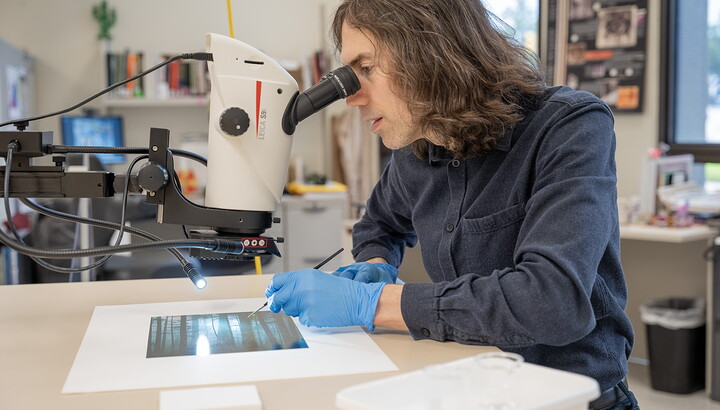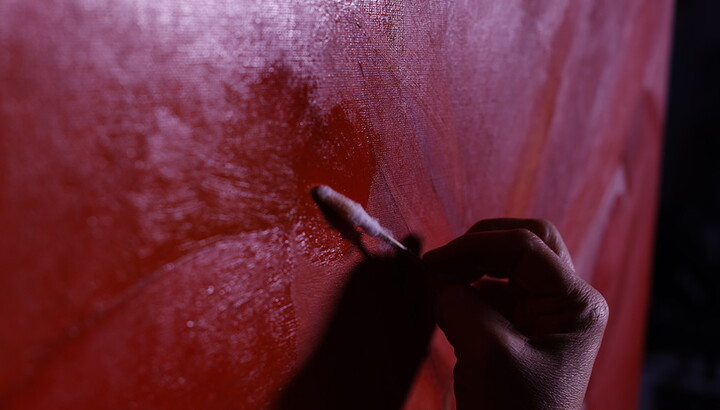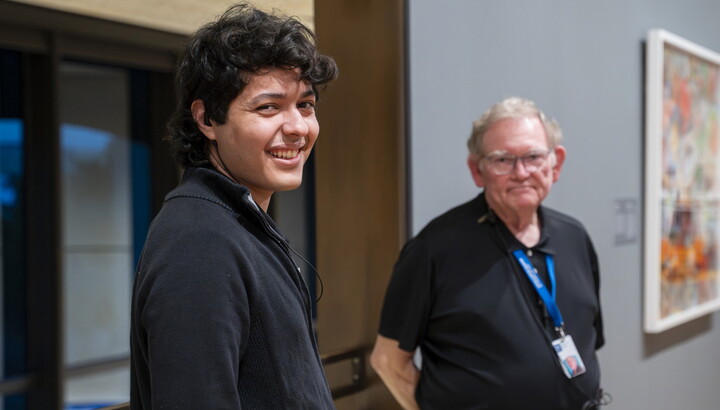The Carter Blog
Carter ARTicles
Collection bee-sides
May 21, 2025
The back wall of shelving in the Archives vault at the Carter offers a cross section of the records we store and care for. Marketing materials and general records from curators sit next to special collections, all either waiting to be organized or to be moved to more permanent shelf space. Among the boxes of papers and photographs are more ephemeral materials, which can include things you may not expect to find in the archives of an art museum. One such collection includes a large insect net, a pipette, and a bottle of bee pheromones — carefully taped shut.
This box was one that made very little sense to me when I first opened it on one of my ongoing attempts to clear off this section of shelving. While I could see some possibilities for the insect net, I didn’t even know that bee pheromones existed, let alone why they would be in our archives. The answers and context for why they wound up with us can be found in the paper materials included with these artifacts and in our exhibition files for one of the Carter’s most well-known shows.
In the American West was a multiyear project that came to fruition in 1985 with the opening of an exhibition and book of the same name. The series, consisting of 124 photographs by Richard Avedon, featured everyday people from 17 western states that emphasized the individuality of the West in a way that hadn’t been seen before. Of the over 700 photographic sittings done for the project, one stood out among the final images — that of Ronald Fischer, a beekeeper from Illinois.
Showing a shirtless, bald man covered in bees, the image of Fischer has become one of the most recognizable photographs from the series. While the photograph itself is striking to see, equally interesting are the materials used and the accounts of the photoshoot. In his recollections, Fischer describes sending a photograph of himself, sans bees, to a coordinator for the project, resulting in him being chosen and, in turn, recommending Dr. Norman Gary, an entomologist, to assist with the shoot. The group met in California, where Dr. Gary dotted queen-bee pheromones onto Fischer’s head and chest to attract the bees. Despite the number of bees that landed on him throughout the shoot, Fischer was only stung four times. Ouch!
This small archive of objects links an iconic photograph to the people and time when it was taken. Archives are not always just papers or files, and they are not always just about preserving information. What archives definitely are, though, is a way to capture moments and ideas, in whatever form they take, to be encountered again later.
Richard Avedon at the Carter, on view through August 10, 2025, celebrates 40 years of In the American West with 40 works from the series accompanied by behind-the-scenes archival material of Avedon’s acclaimed portraits.







